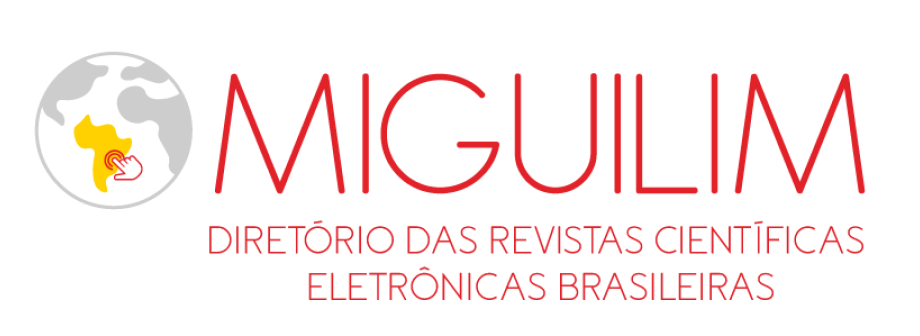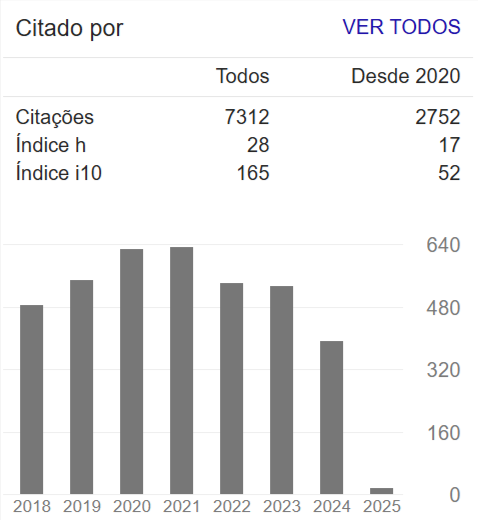Physical-chemical quality of water for human municipalities of the sertão da Bahia: a study considering several sources of supply
- QUALIDADE FÍSICO-QUÍMICA DA ÁGUA PARA ABASTECIMENTO HUMANO EM MUNICÍPIOS DO SERTÃO DA BAHIA: UM ESTUDO CONSIDERANDO DIVERSAS FONTES DE SUPRIMENTO (Português (Brasil))
- QUALIDADE FÍSICO-QUÍMICA DA ÁGUA PARA ABASTECIMENTO HUMANO EM MUNICÍPIOS DO SERTÃO DA BAHIA: UM ESTUDO CONSIDERANDO DIVERSAS FONTES DE SUPRIMENTO (Português (Brasil))
- QUALIDADE FÍSICO-QUÍMICA DA ÁGUA PARA ABASTECIMENTO HUMANO EM MUNICÍPIOS DO SERTÃO DA BAHIA: UM ESTUDO CONSIDERANDO DIVERSAS FONTES DE SUPRIMENTO (Português (Brasil))
Abstract
Water supply in rural areas of the Brazilian hinterland is hampered by water shortages and inappropriate policies and technologies that range from capture to distribution to the consumer Currently, several sources are used for water supply, such as: groundwater (wells), rainwater (cistern), and surface water, which includes water from the car-kite. In view of the need to guarantee access to water due to its importance for health promotion, the present study aimed to analyze the quality of the water available for human consumption, in terms of physical and chemical parameters, from the sources mentioned in five municipalities of the Semiarid region of Bahia. The results showed that the arid soil conditions influence the water quality of the wells of the studied region, making them more brackish. On the other hand, water from a car-kite that supplies P1MC cisterns in the face of prolonged drought was vulnerable due to the use of chlorine without proper control and may be above permitted. The rainwater presented adequate conditions about physico-chemical characteristics. The results indicate the need for public policies that guarantee access to quality water in the region studied.

















